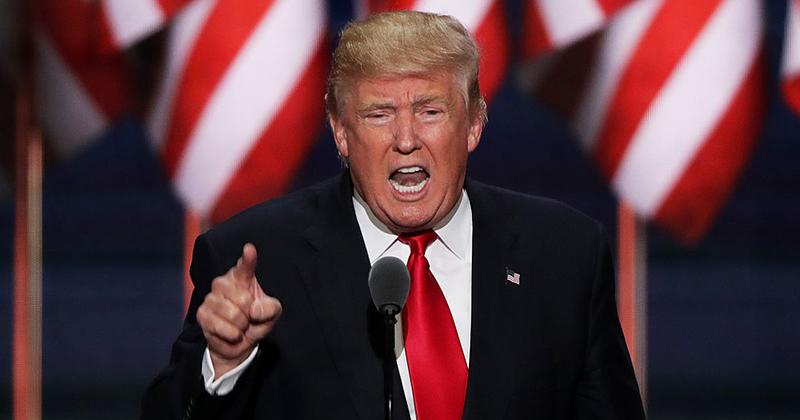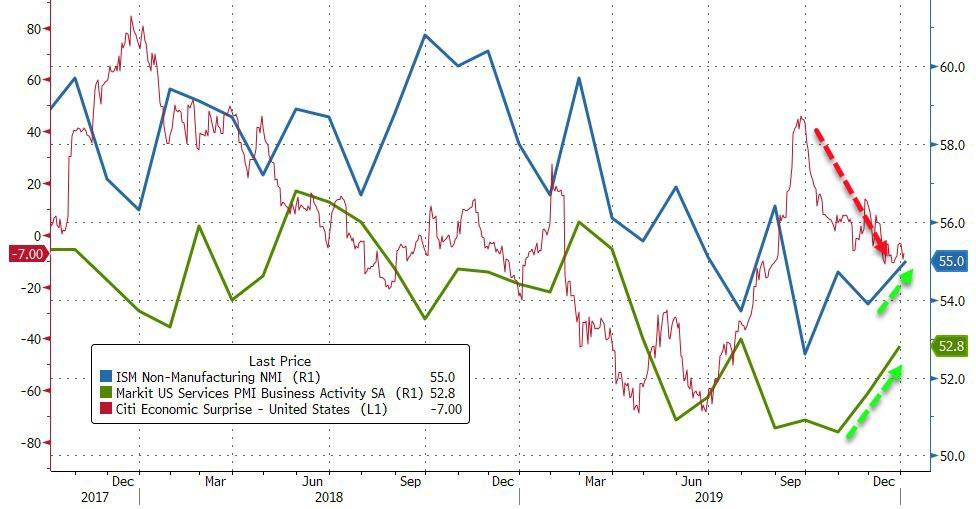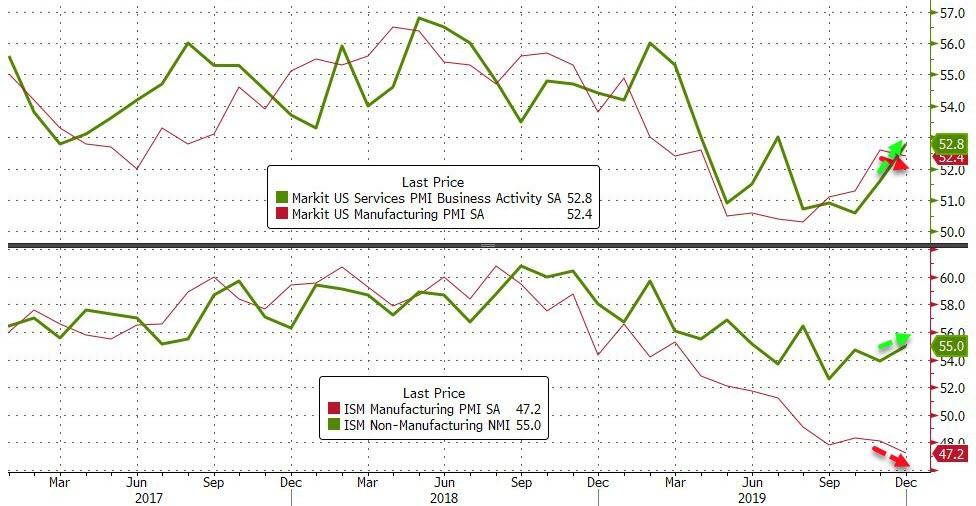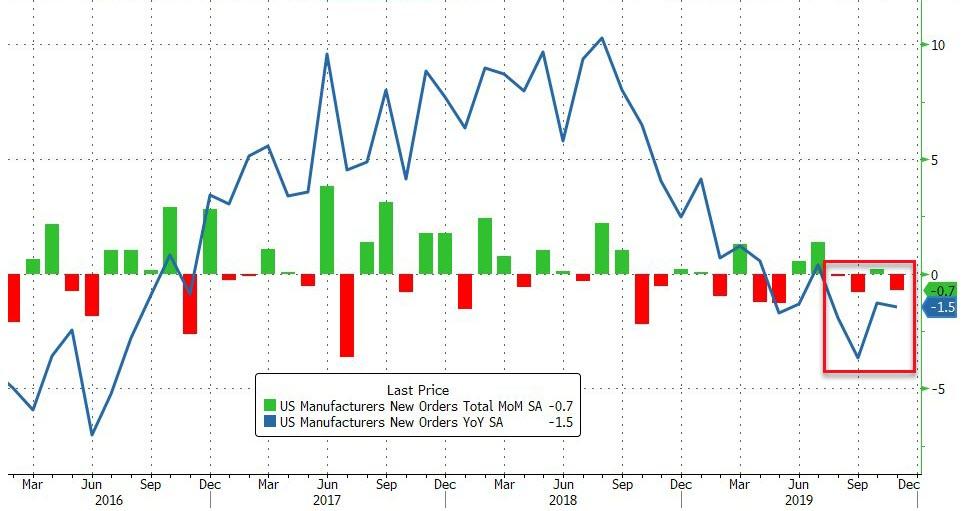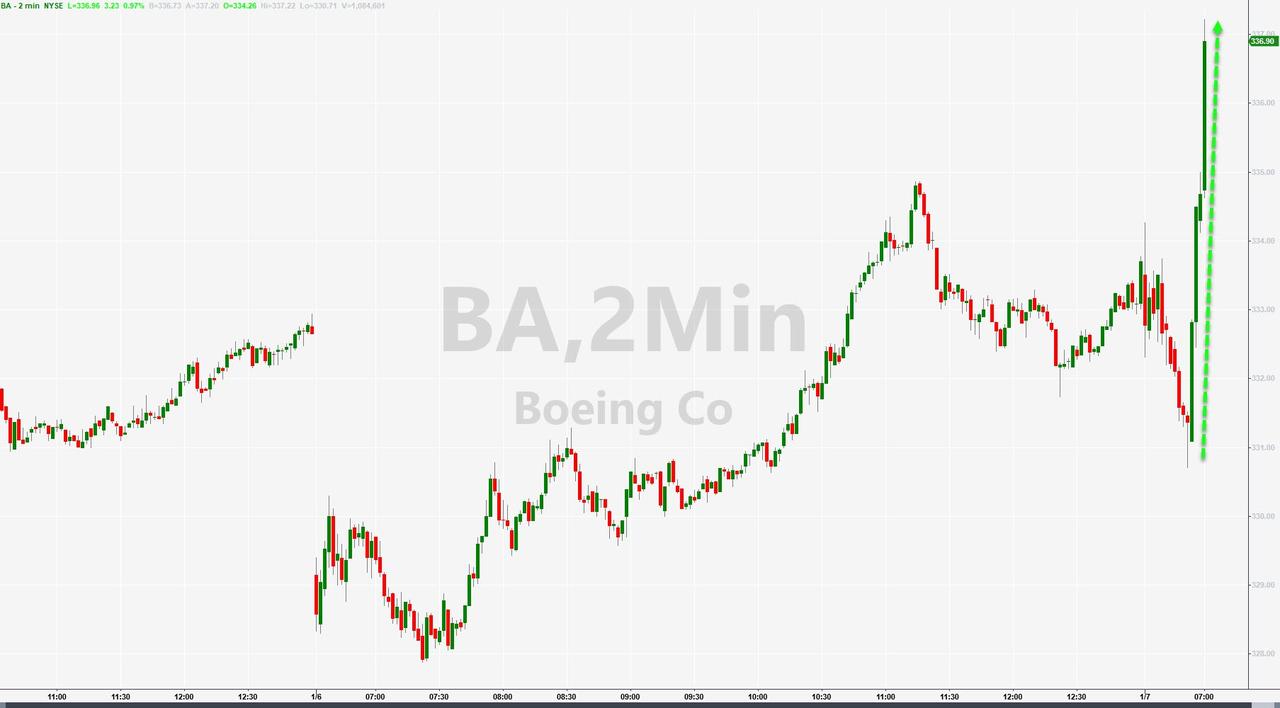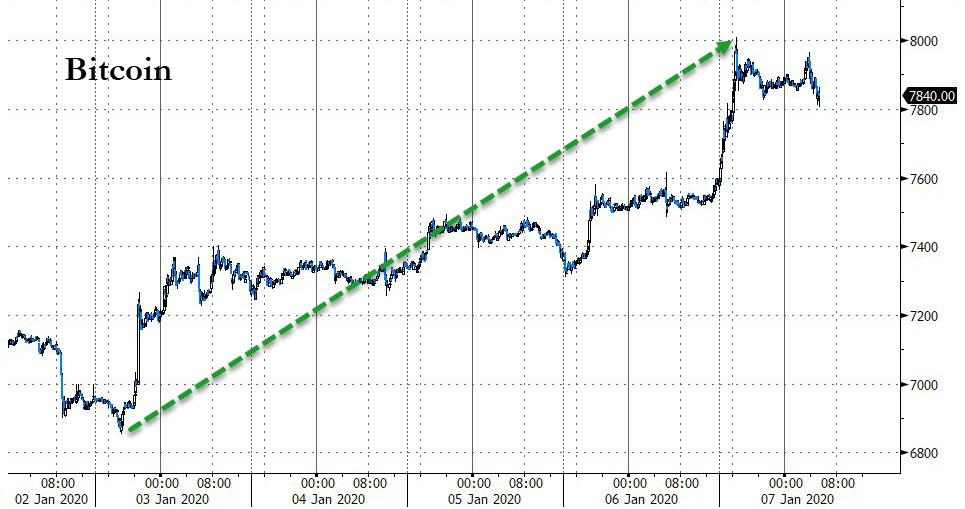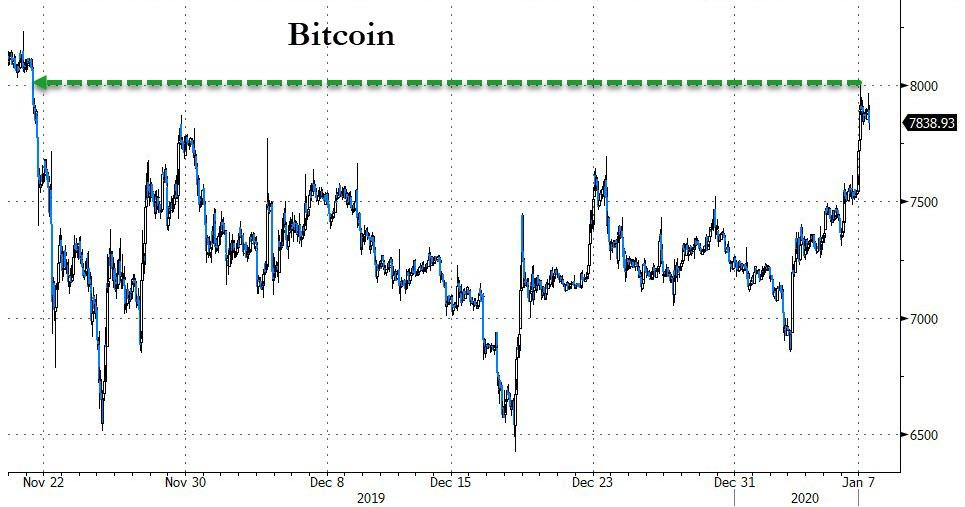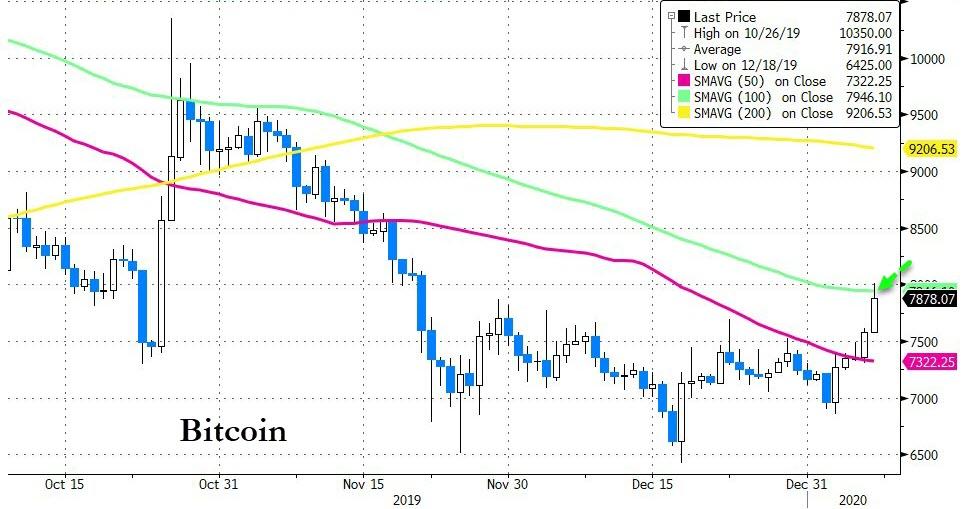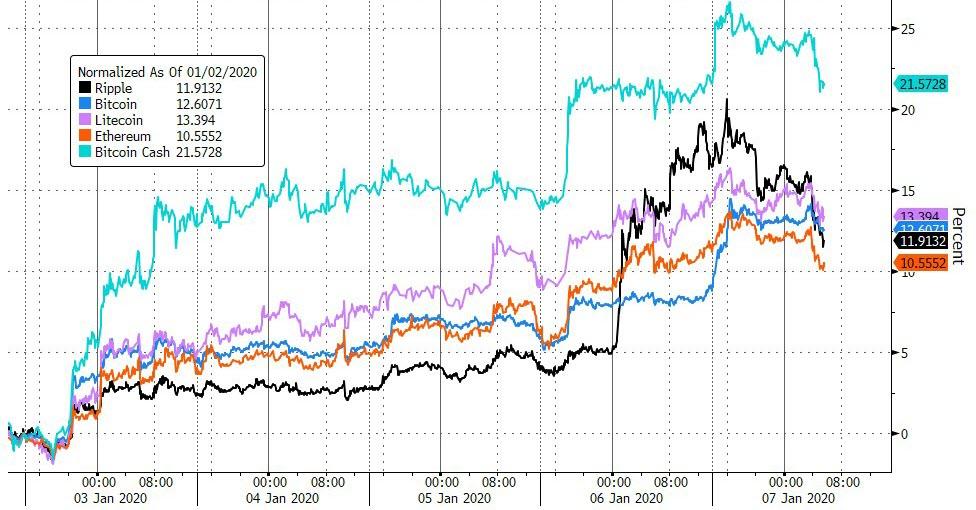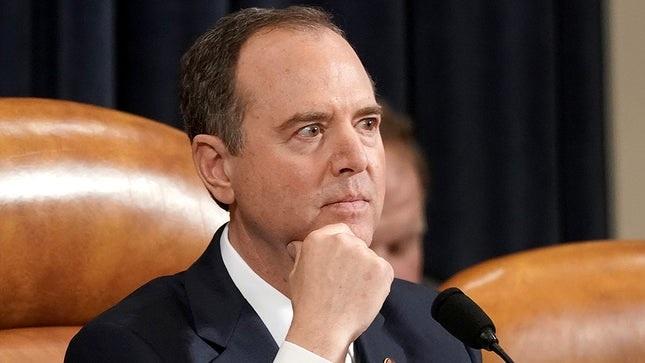For three years, President Donald Trump’s supporters have insisted that whatever his other flaws, he is at least no warmonger, unlike his more establishment alternatives in thrall of “the blob,” the foreign policy establishment whose consensus rules Washington regardless of public opinion. That was never true. But the assassination last night of Iranian Gen. Qassem Soleimani, commander of the elite Quds Force, has put America on the precipice of a major new conflict, proving that Trump was at best a fickle warrior against “endless war.”
Soleimani, along with other Iran-backed militia figures, was killed at Iraq’s Baghdad International Airport in a strike ordered by President Trump. There is no question that Soleimani was a bad guy. He was the head of an elite unit of the Iranian Revolutionary Guards and second in command behind Iran’s leader, Ayatollah Ali Khamenei. Soleimani was also a shadow puppet master who got his minions—militia groups and regimes from Tehran to the Mediterranean—to run proxy wars against his enemies. He propped up the brutal regime of Bashar Assad in Syria to crush Iran’s Sunni enemies; he trained and funded Hezbollah in Lebanon to counter Israel; he stirred up a civil war in Yemen by backing the Houthis to make trouble for Saudi Arabia.
That doesn’t mean eliminating Soleimani so brazenly was anything but a reckless act that marks a major escalation in a war that Trump himself started when he tore up the Iran nuclear deal and imposed crippling sanctions on Iran. Those sanctions banned not just American but also foreign companies from buying oil and other Iranian exports. This threw Iran into a major recession, causing its currency to crash and inflation to soar 40 percent. The upshot has been widespread shortages of basic food, housing, and medicine —and rampant hunger and disease for the poorest, naturally, worst hit.
The Trump administration had hoped that this strategy of “maximum pressure” would prod fed-up Iranians to overthrow their rulers and put in place more moderate ones friendlier to America. In other words, Trump launched a war of “regime change,” too— except that instead of using military means as “the blob” might have favored, he opted for economic warfare.
But people who are struggling to keep body and soul together don’t usually launch revolutions—and Iran’s mullahs have crushed all domestic unrest with decisive force. The bigger problem, however, is that “maximum” economic warfare makes actual warfare inevitable. This is partly because no sitting regime can accept the ignominy of such hostility and partly because, in the absence of mutually beneficial commerce with enemies, the cost of retaliation greatly diminishes. As they say, if goods can’t cross borders, soldiers or bullets will.
That’s basically what’s been happening for the past few years.
Iran has attacked two tankers in the Persian Gulf, downed a U.S. drone, and in an act of sheer chutzpah in September, reportedly sabotaged Saudi Arabian oil facilities because that kingdom is its enemy and a U.S. ally. And then, last week, Soleimani used the pro-Iranian militia Kataib Hezbollah (KH) in Iraq to attack the U.S. base near Kirkuk—killing one American contractor and injuring several American and Iraqi troops.
Two days later, America struck back at five different sites, killing at least 25 KH members in Iraq. This generated massive anti-U.S. protests and the near-siege of the American embassy in Baghdad earlier this week. U.S. military authorities claim that Soleimani orchestrated all this. But it’s also the case that Iraqis are becoming wildly cynical about America’s continued troop presence whose primary purpose they see not as training Iraqi troops, as America claims, but using their country to retaliate against regional enemies.
Be that as it may, given the tinderbox-like situation in the region, the wise course would have been to lower the temperature by easing sanctions and offering to restart nuclear negotiations with the Iranian regime. Instead, Trump, who had been showing some signs of softening at one point, ended up doing the exact opposite.
Nor should this surprise anyone. Under Trump, America’s military footprint has expanded, not shrunk.
For starters, the number of American troops stationed abroad has barely budged— 198,000 under President Barack Obama and 194,000 under Trump. In Afghanistan, there are 8,500 more troops on his watch than under Obama’s. Meanwhile, Trump has sent more troops to prop up the murderous king of Saudi Arabia while backing out of his own much-ballyhooed withdrawal plan from Syria.
Trump has expanded the scope of drone warfare. Obama was no slouch when it came to drone bombing. However, Trump upped him, launching 238 drone strikes in his first two years compared to 186 by Obama at the same time in his term. Worse, Trump subsequently reauthorized the CIA to carry out its own drone bombings and rescinded an Obama-era rule requiring the agency to disclose all the civilian casualties it causes. This makes it much easier to attack countries that America isn’t technically at war with and much harder to track the death and destruction the U.S. is causing, all of which will only sow the seeds of a future backlash from those it is terrorizing.
Furthermore, far from delivering on his promise of reducing the fiscal burden of America’s foreign policy, Trump, who once called U.S. military spending “crazy,” has pushed it to levels that even the Pentagon didn’t think was imaginable. The defense, or rather offense, budget has gone up a whopping $140 billion on his watch.
But handing military authorities such lavish means while weakening accountability practically guarantees that they will find missions abroad to justify their largesse. At least to some extent that is what’s going on with the decision to escalate hostilities with Iran.
The only thing that’s certain right now is that Iran will not take this lying down. The mullahs have pledged to retaliate “forcefully.” The question is whether they’ll do so overtly or through Soleimani’s legacy of proxies.
It is unclear whether Trump was ever really serious about ending endless wars. But even if he was, it is not enough to merely wish for that end. He needed to also eliminate all the internal incentives that keep pushing the U.S. from one quagmire to the next. That requires patience and strategic thinking. Unfortunately, those are not Trump’s strong suits and he might have gotten America into a whole new quagmire of his own making.
This column originally appeared in The Week.

from Latest – Reason.com https://ift.tt/39PvhPa
via IFTTT
